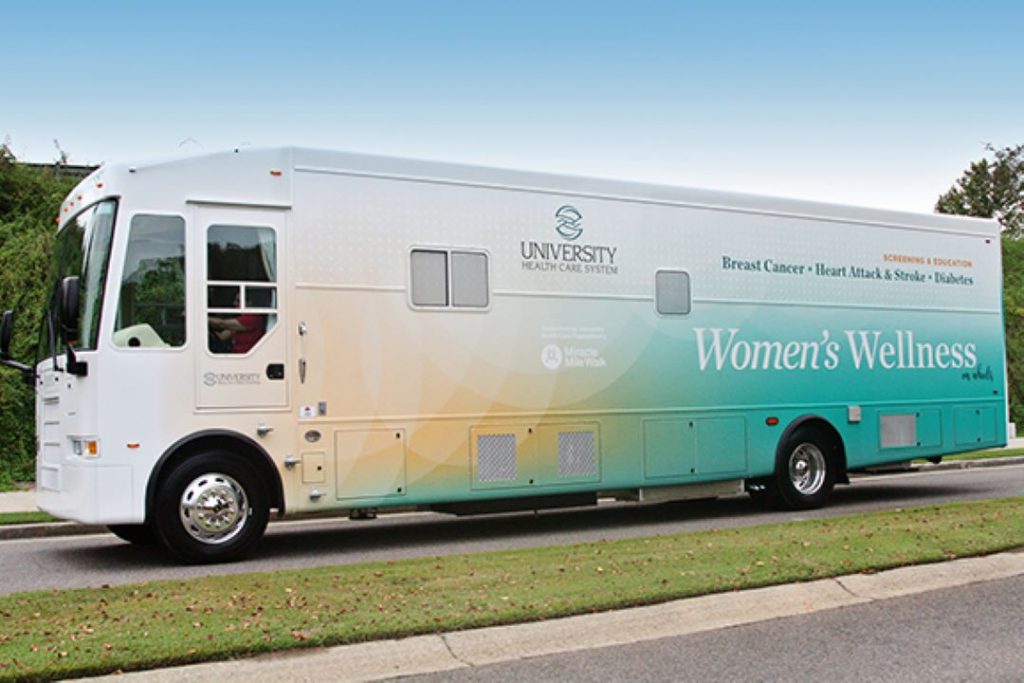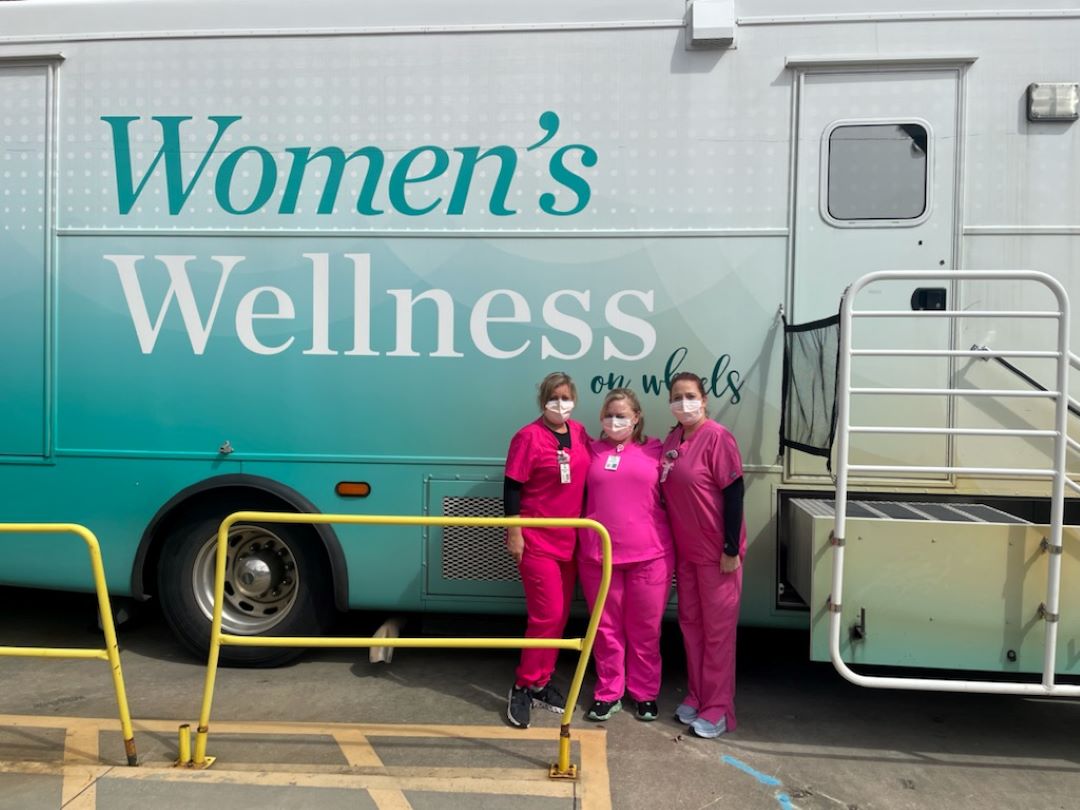Editor’s note: This is the fourth in a monthlong series for breast cancer awareness month. Stories related to breast cancer are running on Wednesdays and Sundays in October.
Getting a mammogram is an important piece to women’s health care.
“Finding breast cancer early and getting state-of-the-art cancer treatment are the most important strategies to prevent deaths from breast cancer. Breast cancer that’s found early, when it’s small and has not spread, is easier to treat successfully. Getting regular screening tests is the most reliable way to find breast cancer early,” according to the American Cancer Society.
But some women have barriers to having the lifesaving screening.
Transportation issues, finances and taking time off from work are some of the challenges women have.
[adrotate banner=”15″]
University Hospital’s Women’s Wellness on Wheels has been on the road removing barriers for two decades.
“The mobile unit has been in operation since 2001,” said Melissa Manley, University Hospital’s Breast Health Services and Survivorship Manager. “We’re on our second unit. We’ve done 75,000 mammograms on the mobile and have found 300 cancers.”
That’s not a bad ratio, Manley said.
More than 325,000 miles have been covered and 20 counties in Georgia and South Carolina have been served.

On the unit’s first day on the road, technicians traveled to Washington, Ga., where they screened a woman and found a cancer, but most days are routine.
Prior to COVID-19, a mammogram could be performed roughly every 10 minutes, but the time has been stretched out to about one in every 15-20 minutes now.
Manley said the process is safe to do in the middle of the pandemic because there are only two people on the unit during the test.
The mobile unit offers 3D state-of-the art mammograms and is staffed by certified technicians.
[adrotate banner=”20″]
One of the great things about the unit is it can be scheduled at a large employer such as the Savannah River Site, where getting to a doctor’s appointment could result in taking a half day off work, she said.
Or it can go to a rural area, where there’s not a mammography center close by. In some of those cases, women walk to have their mammogram done because they don’t have any other means of transportation.
When it comes to the financial concern, the annual Miracle Mile Walk, which is a Miracle Mile Drive Oct. 16, raises money to support the Women’s Wellness on Wheels and provide mammograms to women regardless of their ability to pay.
To find the mobile mammography unit’s schedule and make an appointment, visit https://www.universityhealth.org/classes-events or call (706) 774-4149.
Charmain Z. Brackett is the features editor for The Augusta Press. Reach her at charmain@theaugustapress.com.











